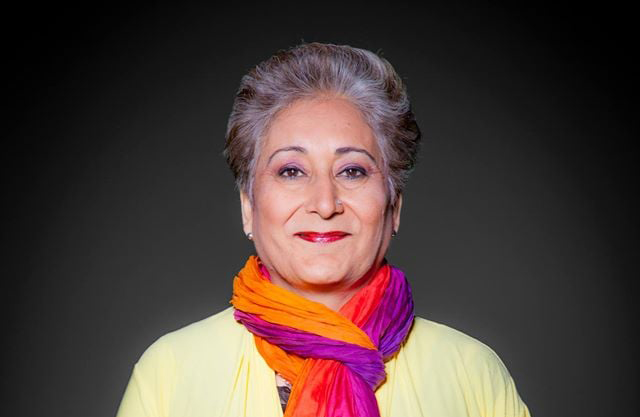Recognizing that anti-Semitism is a “uniquely pervasive, enduring, and lethal form of hatred,” Muslims in several countries, including Canada, have come together to alter the hearts and minds of their co-religionists around the world.
The Council of Muslims Against Anti-Semitism (CMAA), which bills itself as “the first global, all-Muslim group solely dedicated to fighting anti-Semitism in all its guises,” was launched virtually on April 7, an auspicious date that marked the start of Yom ha-Shoah.
About 140 Muslim leaders, academics, professionals and influencers joined moderator Raheel Raza, the Canadian activist and head of Muslims Facing Tomorrow, for the launch, which denounced anti-Semitism in no uncertain terms.
“It is an evil that can only be fought by recognizing its distinctive dynamics,” Raza told participants. The CMAA will “constitute, mobilize and catalyze a global Muslim voice to counter the meteoric rise of 21st century anti-Semitism.”
Formed last year as a non-profit, the group plans to confront what it bluntly calls the “systemic promotion of anti-Semitism by Islamist extremists, for whom the demonization and hatred of Jews is a central pillar of belief.”
Islamist hatred of Jews “constitutes a profound threat not only to the Jewish community, but to democracies, the Muslim world, and to global stability.”
The group has a five-person steering committee and seven-member advisory board. It hopes to support and enhance efforts by those Muslim organizations, Muslim-majority countries, “and the growing chorus of Muslim leaders, writers, and theologians who have undertaken initiatives to confront the anti-Semitism which has been allowed to fester within our communities.”
The approach, Raza, an anti-racism and interfaith activist known for her pro-Israel views and opposition to Islamic extremism, told The CJN in an interview, is “non-apologetic and honest.”
But it won’t be easy, panelists agreed.
Fighting anti-Semitism from within Islam is often perceived as a dishonor that earns the tag of “self-loathing Muslim,” said California-based activist Soraya Deen, founder of the Muslim Women Speakers Movement.
Radical imams, Deen said, “spew anti-Semitism” in the United States and globally “with impunity.” Hatred of Jews is a “deeply entrenched mindset in the Muslim world.”
In her native Sri Lanka, anti-Semitic incitement is “rampant” and support for Palestinians determines what kind of Muslim one is. Deen said that because of her support of Jews and Israel, she has been called a Zionist and “Jew-lover.”
Anti-Semitism is a “triple threat,” noted Haras Rafiq, a trustee of the U.K.-based charity Muslims Against Anti-Semitism: It comes from the far left, far right, and from “Islamist” theocracies. And it’s fast becoming “part of the DNA” of mainstream Muslims.
“Islamists” are driving anti-Semitism in several ways, Rafiq explained: By dehumanizing Jews; treating them as a collective; and via the “oppression narrative” – the belief that Jews and Israel are the reasons Muslim are oppressed.
He said nearly half of Muslims in the U.K. are spreading conspiracy theories. “This has to stop. We must call out hatred and build coalitions before it gets too late.”
Another blunt assessment came from M. Zuhdi Jasser, president and founder of the American Islamic Forum for Democracy.
There is “no greater threat to humanity than the pathology” behind Muslim anti-Semitism, especially give that Muslims comprise one-quarter of the world’s population.
Jasser said he’s a Muslim Zionist because, he argued, the Qu’ran states God gave the Israelites the land of Israel as their promised land.
The recent Abraham Accords are beginning to turn the tide of Muslim anti-Semitism, he added, as imams in the United Arab Emirates are calling Israel a friend.
“If Islamist anti-Semitism is wholly confronted by modern anti-Islamist Islamic reformers, I believe it can be marginalized and ultimately defeated,” Jasser says in the CMAA’s publicity material.
Raza said the CMAA will be guided by the International Holocaust Remembrance Alliance’s (IHRA) working definition of anti-Semitism. She said the organization rejects “any attempts to redefine” the IHRA wording.
Targeting hardline Muslim-majority countries for reform will be difficult “but not impossible,” she said. She told the launch that the organization must “call out” Iran, Turkey, and the Muslim Brotherhood for their anti-Semitism.
The CMAA was launched on Yom ha-Shoah “to make a point as loudly as possible.”
The organization “is under a magnifying glass so we have to step carefully,” Raza said, “but we’ll do whatever needs to be done.”
